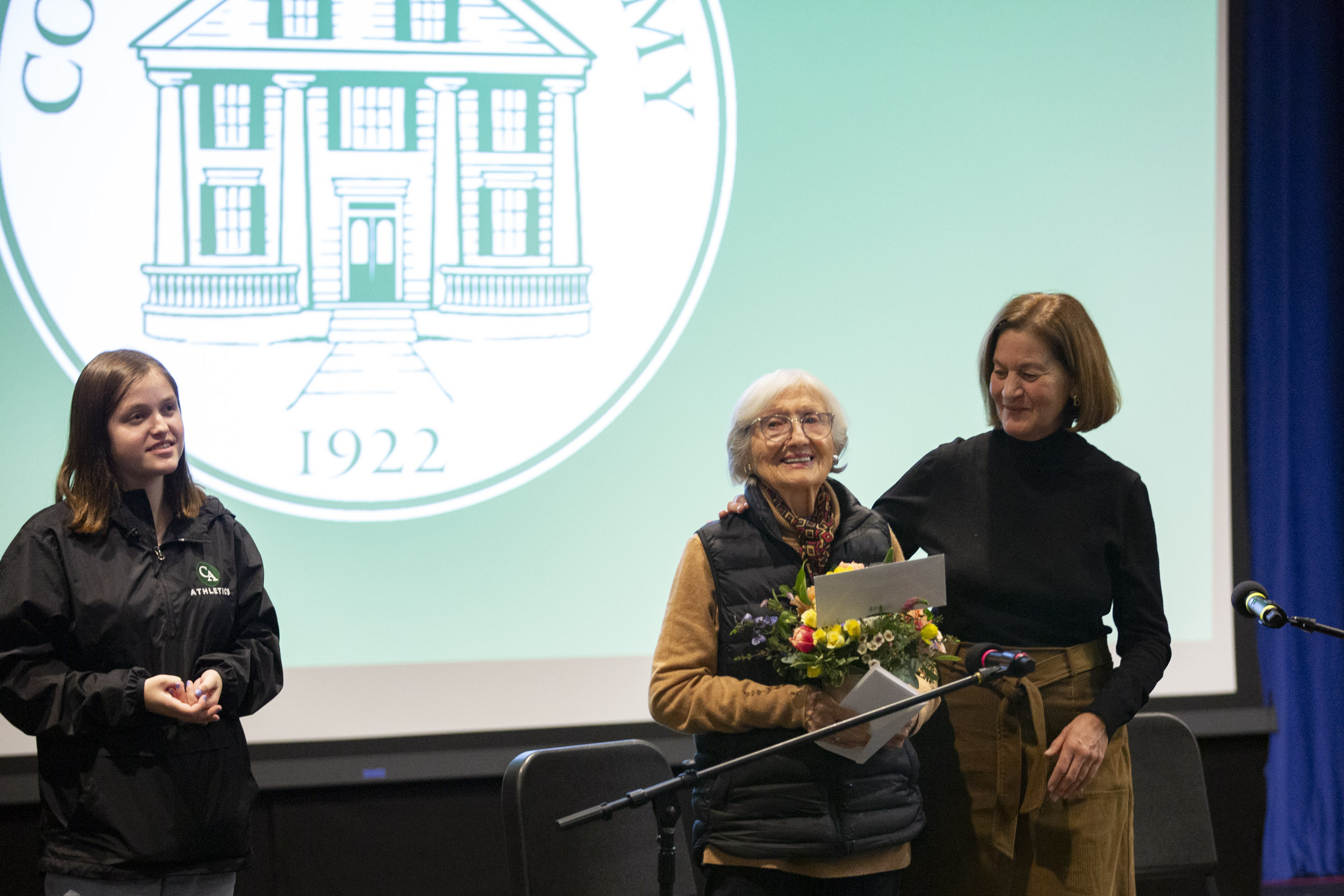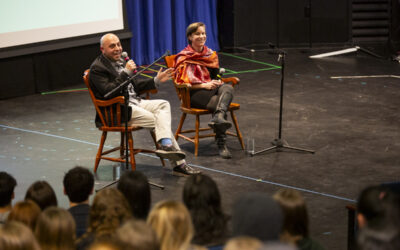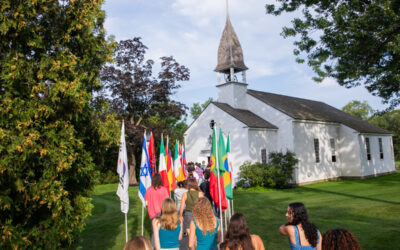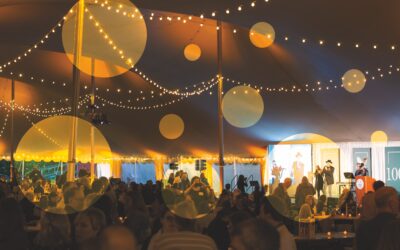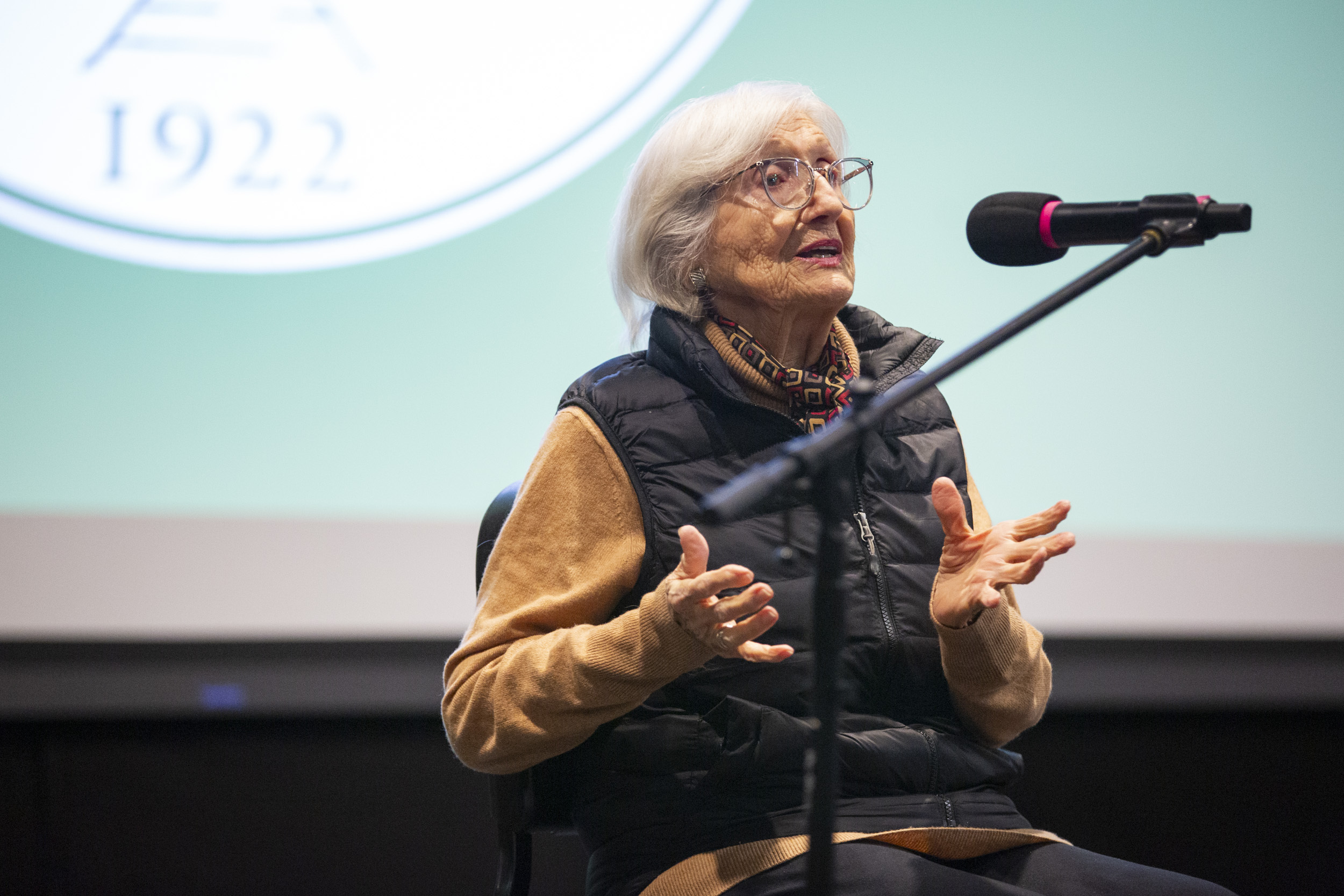
On January 26, members of Concord Academy’s Jewish Student Organization (JSO) hosted Holocaust survivor Magda Bader, 94, during an assembly in honor of International Holocaust Remembrance Day. Bader’s talk was moderated by Debbie Coltin, a Holocaust educator, president of the Lappin Foundation, and member of the board of the Holocaust Legacy Foundation.
The student leaders of the JSO, Emily Emanuel ʼ25, Maddy Plotnick ʼ24, and Zoe Sachs ʼ24, introduced the guests and emphasized the importance of being the last generation to be able to hear firsthand from Holocaust survivors. Before the talk, the audience watched a short film, “The Auschwitz Album,” which shows the only known photographic evidence of the systematic sorting process leading to the atrocities committed by the Nazis at the Auschwitz-Birkenau extermination camp.
Bader was the youngest of 10 children who grew up in what was then the Czech Republic (now Hungary). She was 14 when her family was forced to leave home, move to the ghetto, wear armbands—a visual identifier of being Jewish—and, shortly thereafter, board cattle cars to Auschwitz. On the forced march to the railroad tracks that took many to their deaths, Bader’s mother tried to help her father who had fallen, for which a soldier struck her with the butt of a gun; Bader never saw her grandfather again.
Though she can’t fully recall the horrors of the cattle cars, Bader said she remembers that there were two buckets: one to use as a toilet, the other with drinking water. When after several days the passengers emerged from the dark, overcrowded cars, Bader said, the bright light was shocking. “‘Just keep moving,’ said the soldiers. ‘You will see each other again.’”
Bader described how, with the family already split, the few belongings she and three of her sisters could carry were taken from them before they were “disinfected” in showers and marched into barracks housing a thousand women. “All of the precious things were suddenly no longer ours,” she said.
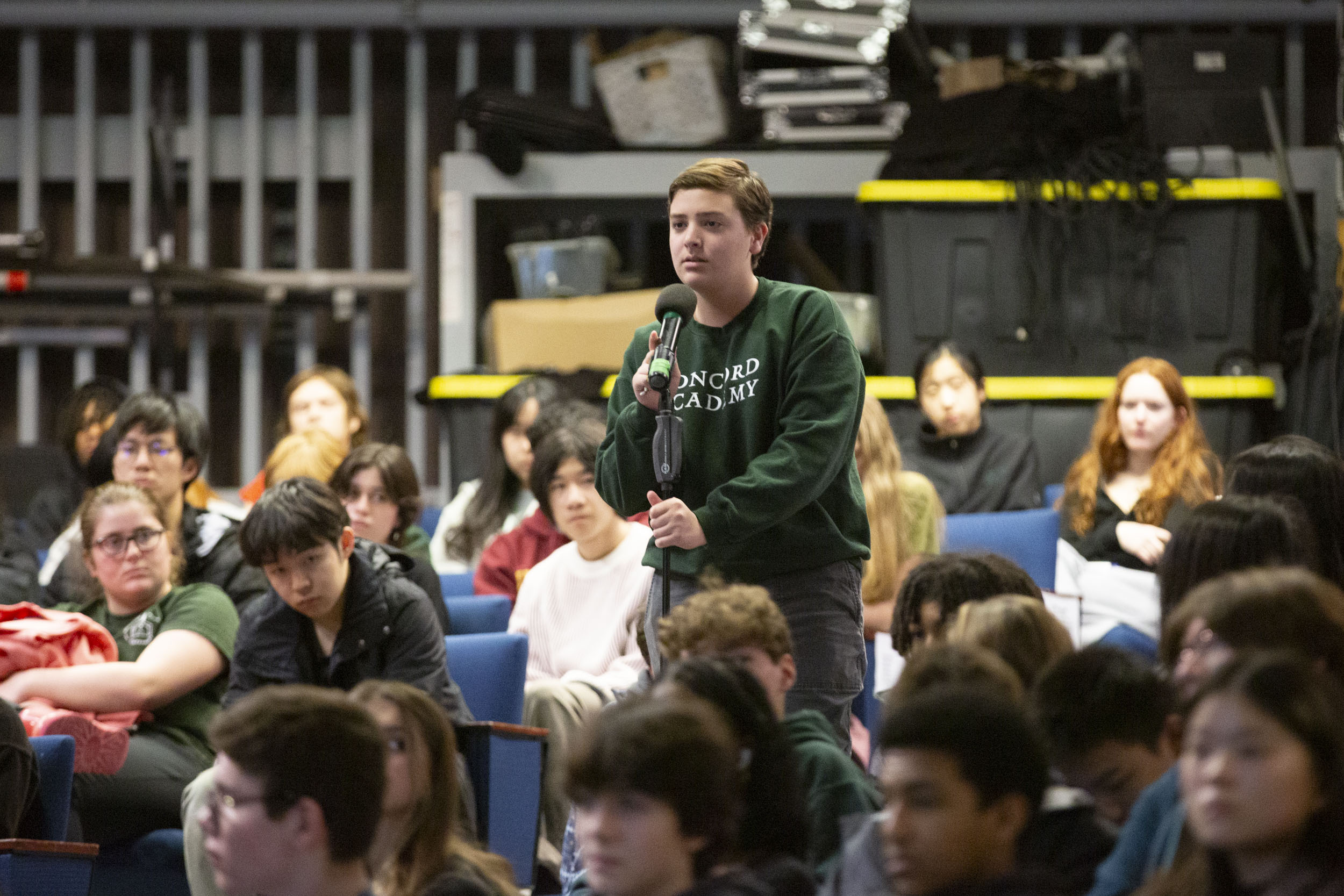
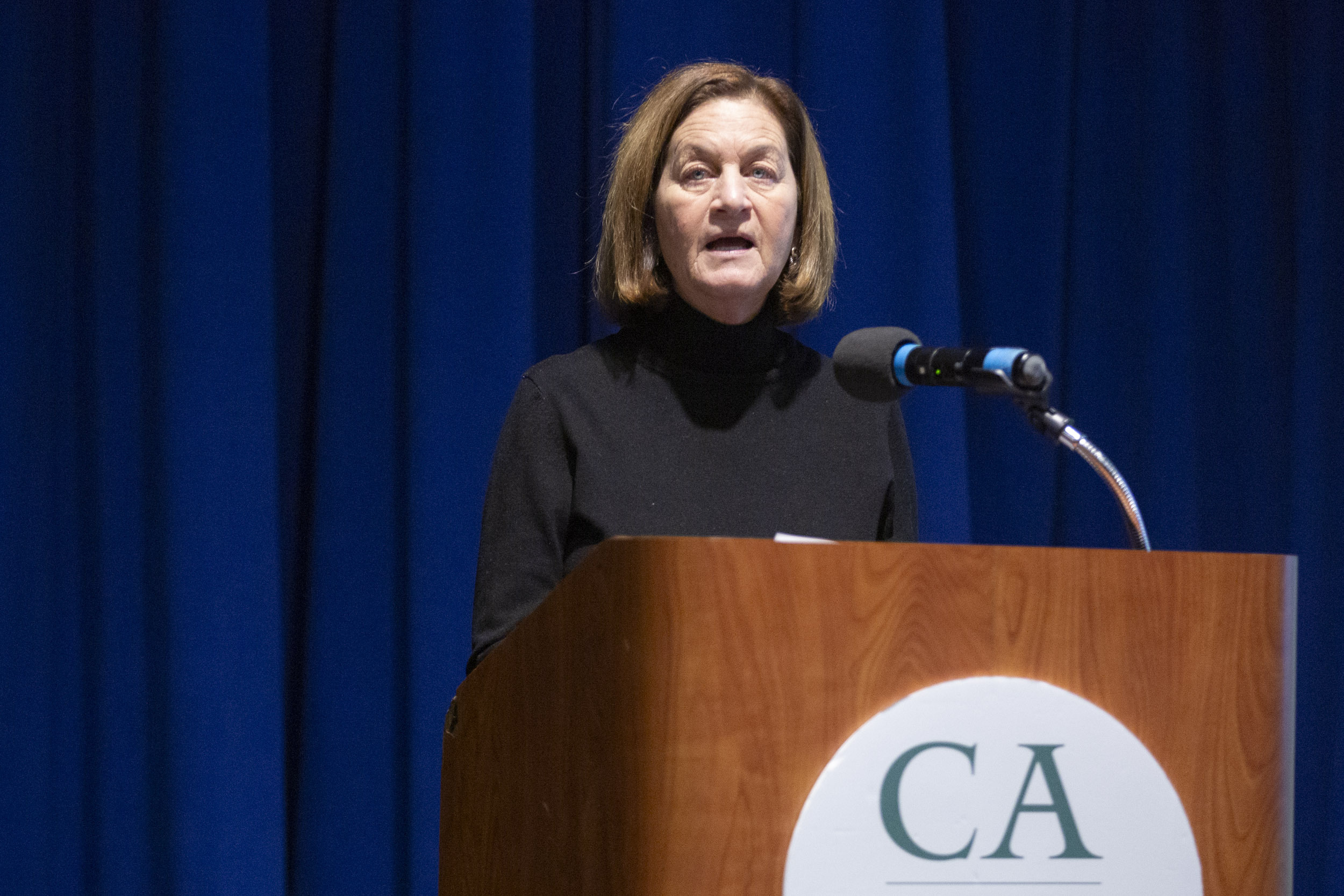
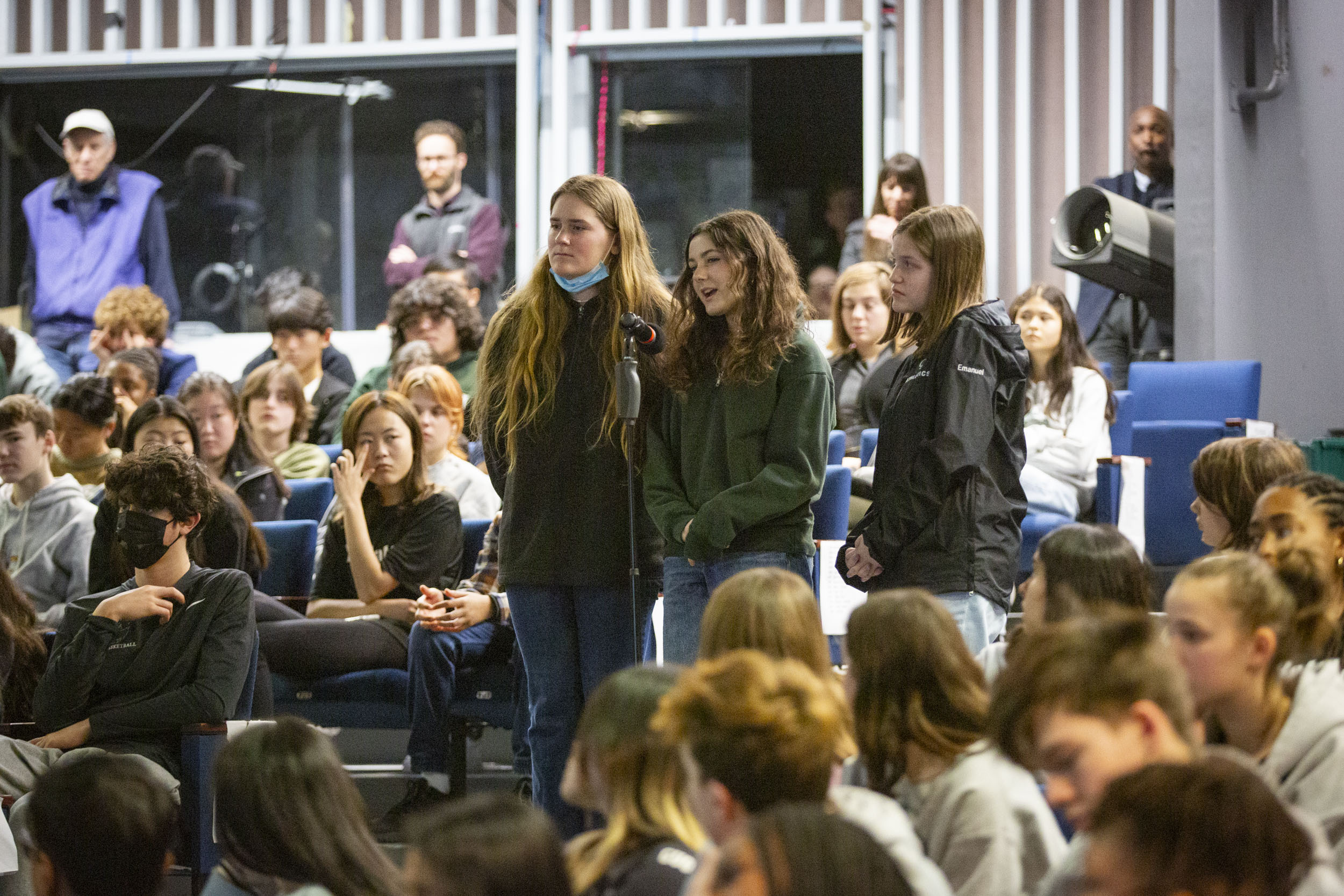
The year was 1944. “Hitler was not doing so well,” Bader said—this is one of the reasons that she escaped being tattooed with a number like many of those persecuted or killed in the gas chambers.
She prayed, she said, but her main focus was to live: “It was very difficult to think about anything but how to survive.” She witnessed wheelbarrows filled with the dead and heavy smoke from the crematoria at night. Bader and her sisters were later transferred to Bergen-Belsen in Germany, where some Jewish prisoners were forced to labor in the final months of the war.
Bader and three of her sisters survived, as did one brother; they reunited in England and later made their way to the United States. As for returning home, it was impossible. The family lost any claim to their house. “We were stateless,” she said.
As an adult and a teacher in the U.S., Bader returned many years later to Auschwitz with groups of students. “It wasn’t easy…I didn’t want to relive those experiences,” she said. But as hard as it was, she was thinking of the American and British soldiers who helped her after she escaped, as well as the funds an American resettlement group gave her to sail to America.
“Helping others can make you feel good,” she said. “I felt I had to be helpful.” She advised students to be kind and help others whenever they can: “Treat others the way you want to be treated.”
The United States Holocaust Memorial Museum notes this about the remembrance day: “The United Nations General Assembly designated January 27—the anniversary of the liberation of Auschwitz-Birkenau—as International Holocaust Remembrance Day, a time to remember the six million Jewish victims of the Holocaust and the millions of other victims of Nazi persecution.”
In the week leading up to the assembly, JSO members shared both personal family stories as well as historical profiles of heroes and activists who risked their safety to help others survive, including Irena Sendler. Following the assembly, students and faculty gathered to process the event, expressing gratitude for the opportunity to hear from Bader.
